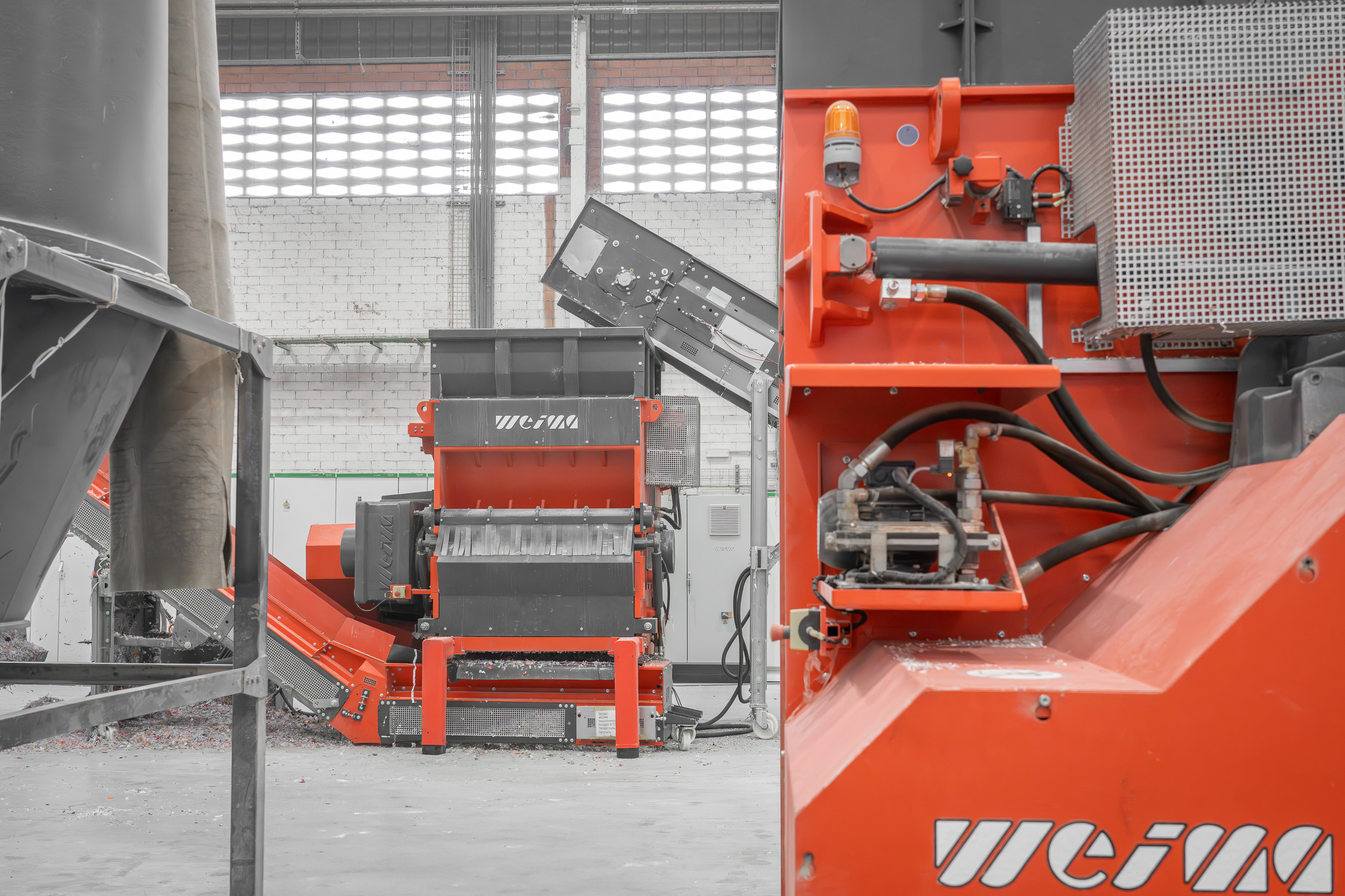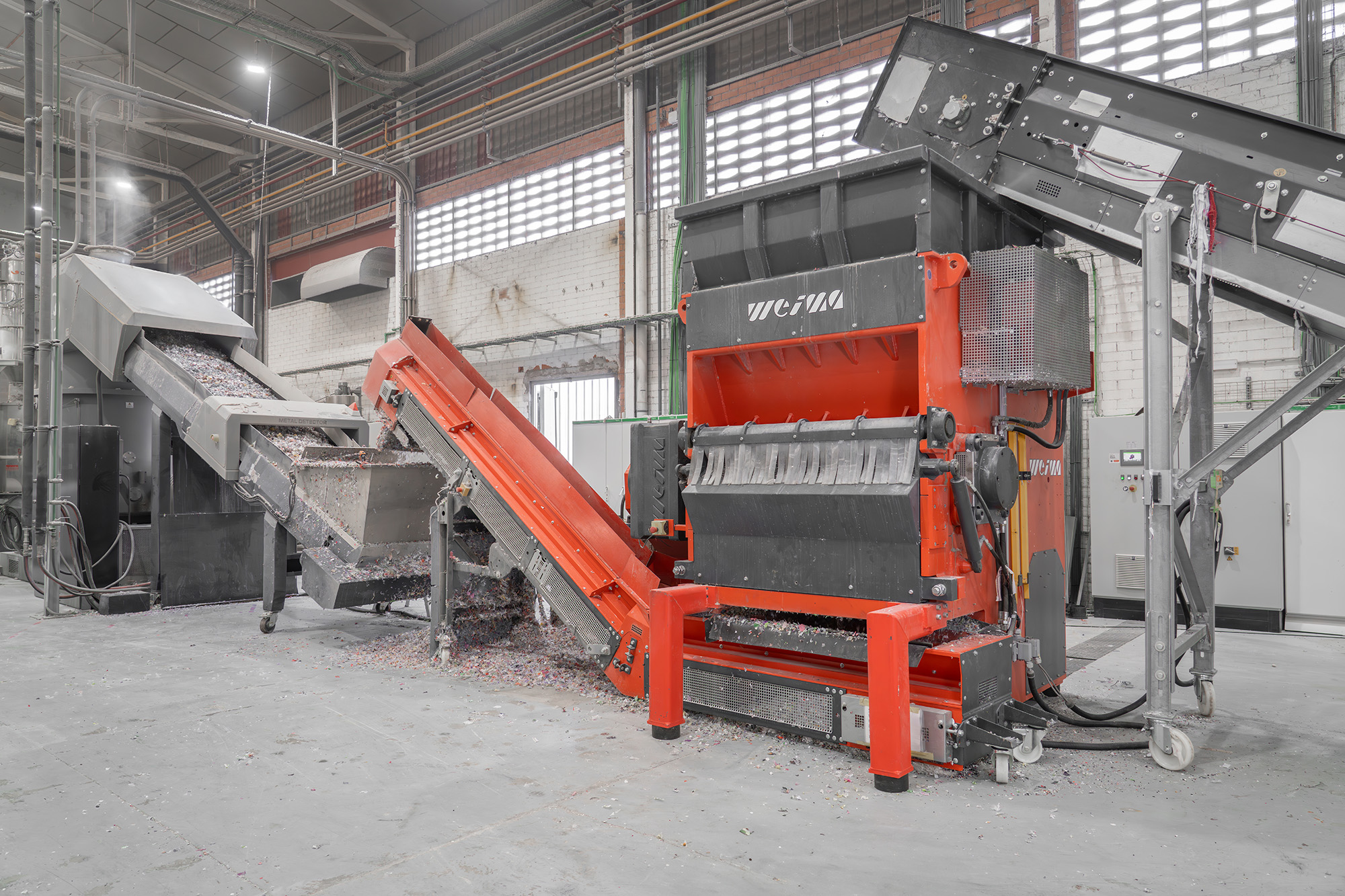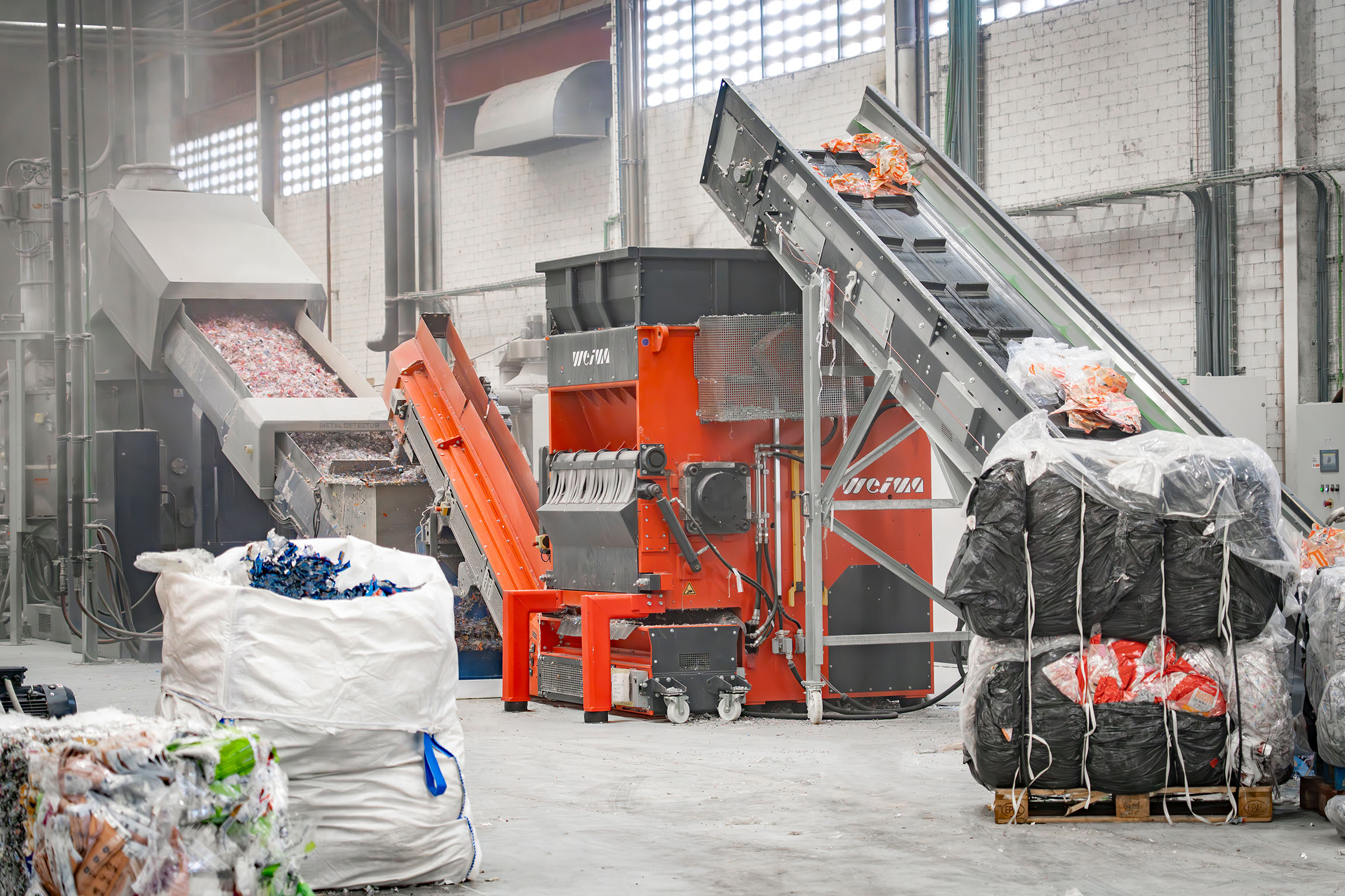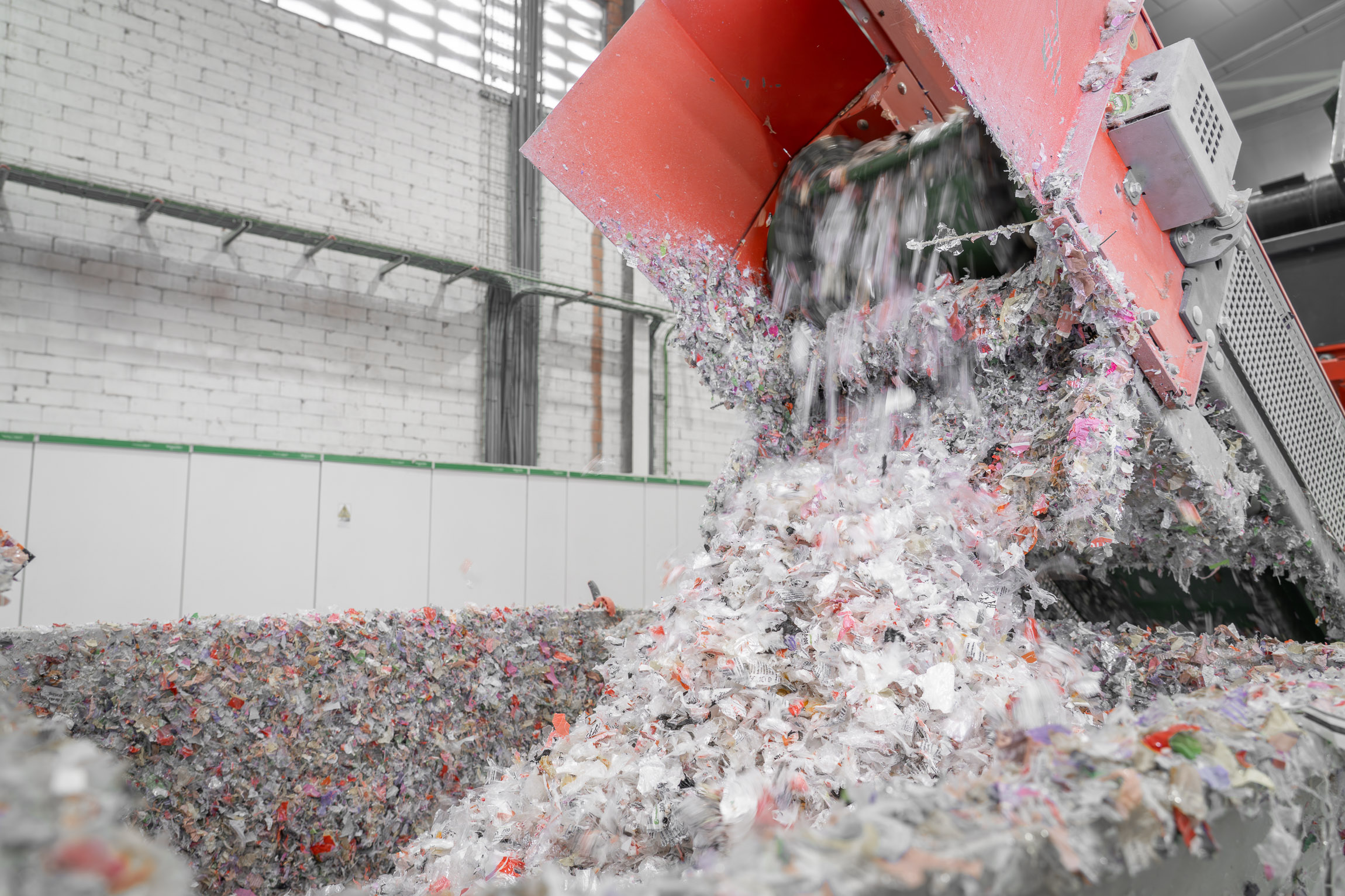The Spanish WURSI Group demonstrates how plastic waste can be recycled to a high standard on an industrial scale. The company processes around 1.500 tonnes of polypropylene and polyethylene into regranulate every month – with two WEIMA W5.14 single-shaft shredders as the central component of the recycling line.
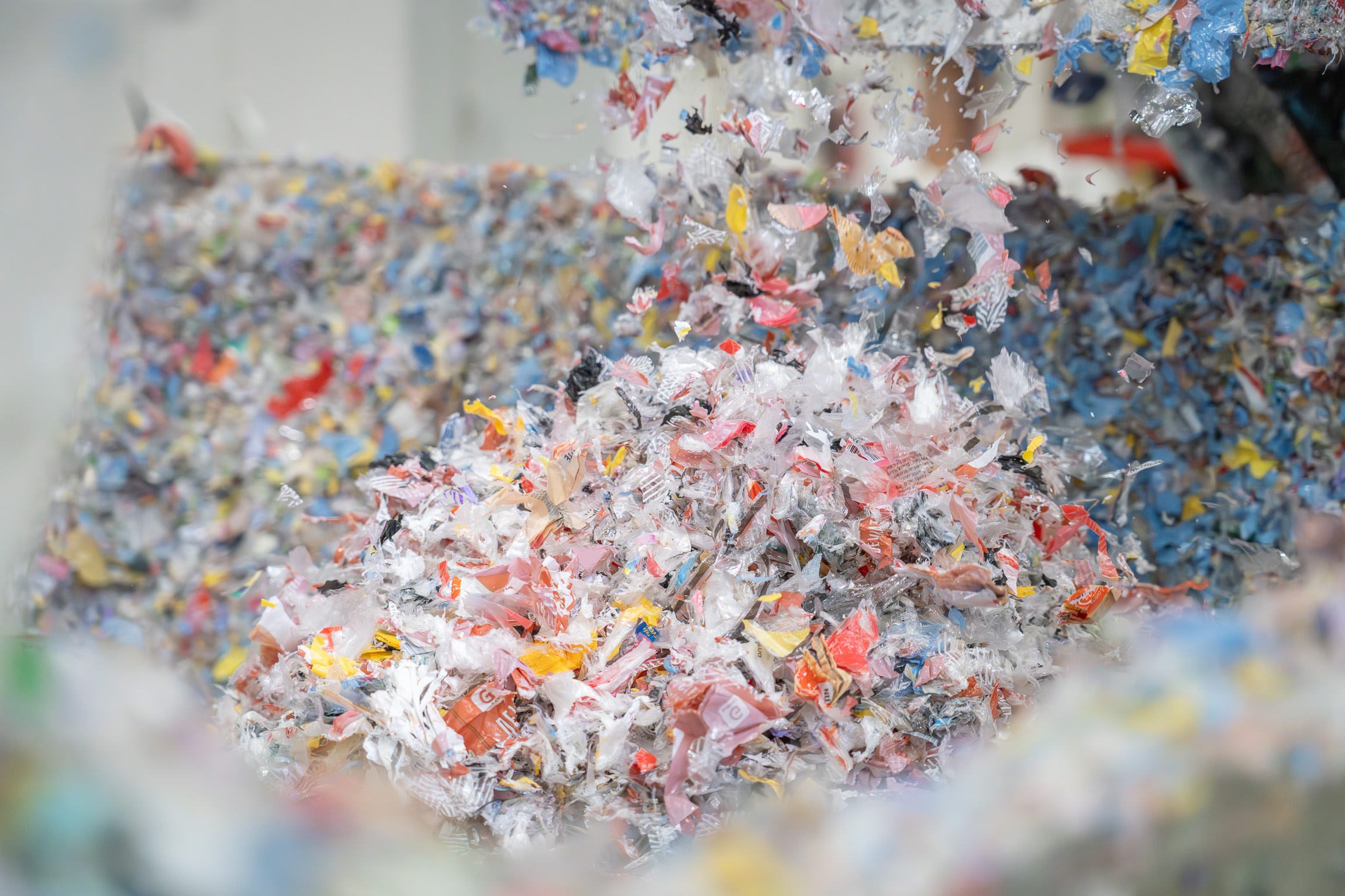
Shredding as a key process: WURSI relies on WEIMA W5.14 shredders
Plastic shredding and recycling
WURSI Group, Spain
Defined grain sizes for stable extrusion
Every detail counts in the recycling process: from pre-sorting to particle size. WURSI first processes sorted plastic waste manually and feeds it into the two WEIMA shredders via a conveyor belt. There, the material is shredded to between 30 and 100 millimeters, depending on the screen configuration. The resulting flakes form the basis for a homogeneous melt in the extrusion process.
We have been very satisfied since we purchased the first machine. We quickly bought the second one and hope to integrate the third one next year.

Process control with integrated safety
The material is fed directly into the extruder either via a conveyor belt or a suction system. A metal detector between the shredding and extrusion stages reliably protects the system from foreign objects. WURSI tests each batch for melt index, density, and color stability in its in-house laboratory. This is an integral part of quality assurance in order to detect process fluctuations at an early stage.
1.500 tonnes
polypropylene and polyethylene
The WURSI Group processes 1.500 tonnes of polypropylene and polyethylene into regranulate every month.
Cooperation with clear communication
WURSI and WEIMA are linked by a pragmatic partnership.
From setup to after-sales service, we have great confidence in WEIMA and hope to continue working together for many years to come. WEIMA gave us a good feeling right from the start and enabled us to develop a close, family-like relationship. We really appreciate that. Whether it's problems, adjustments, or new ideas – there's always a quick response and good cooperation. That's why we chose WEIMA.

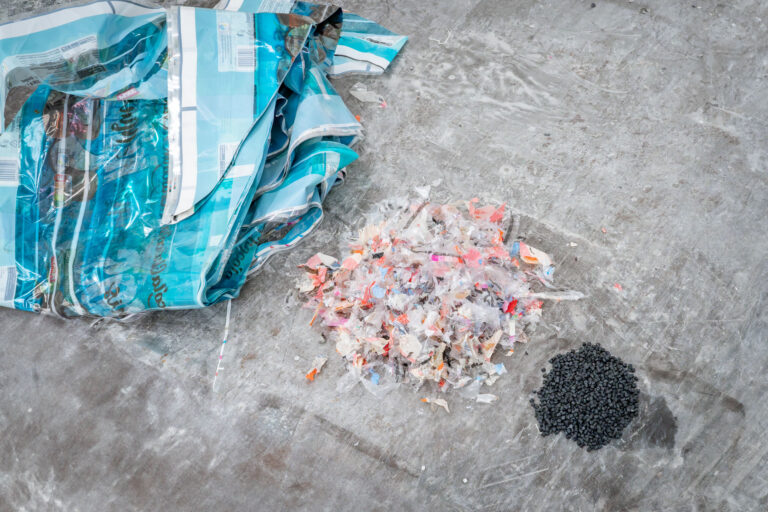
WURSI does not regard plastic recycling as an ecological flagship, but as a technically demanding value-added process. The combination of mechanical precision and quality-oriented process control results in a regranulate that meets the requirements of modern plastics processing and thus enables a genuine material cycle.
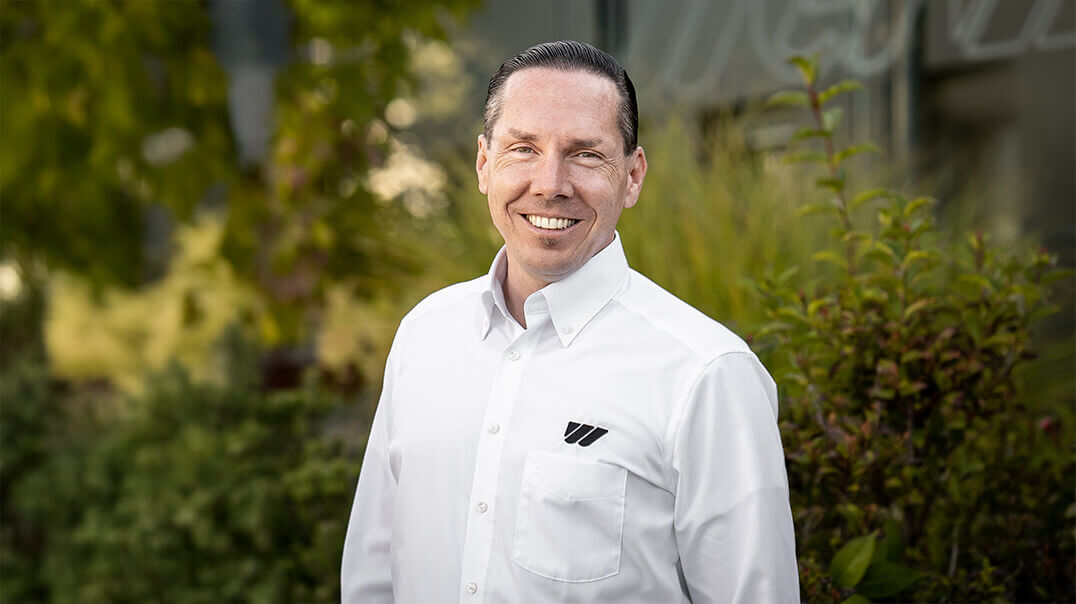
We would be happy to advise you.
Would you also like to recycle your production waste sustainably?
Sign-up for our newsletter
Newsletter
Sign-up for our newsletter today.
Sign-up for our newsletter
What are you looking for?
Explore all WEIMA solutions
